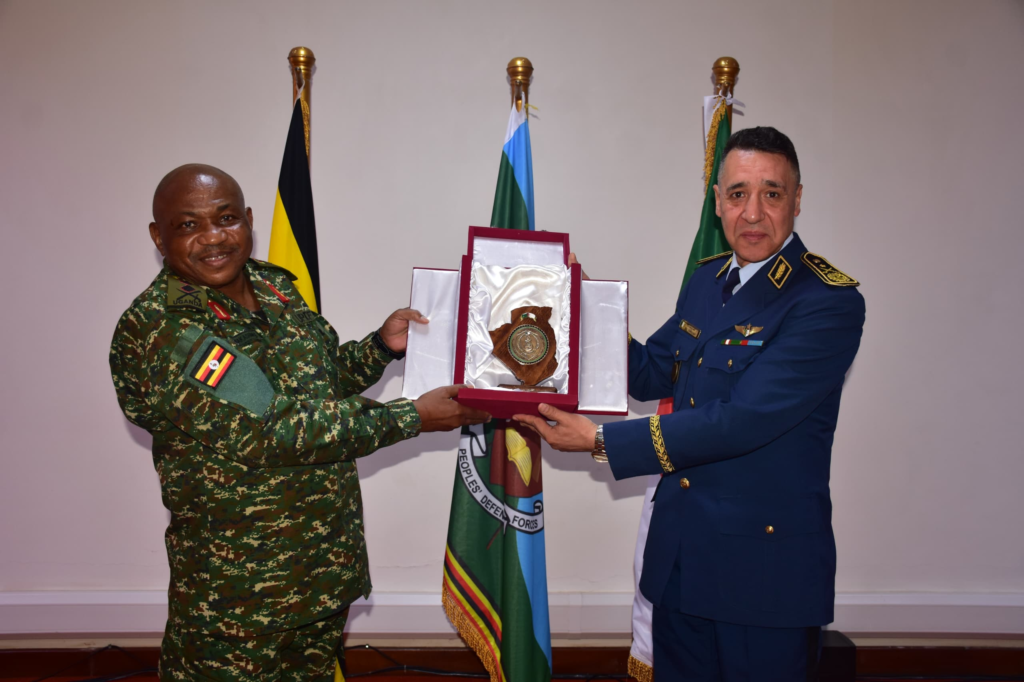Interpol Trains and Deploys to Combat Financial Crime Enabled by Cyberspace

Uganda has received advice from the International Police Organization (Interpol) on how to combat financial crime enabled by cyberspace through strategic deployments, training, and cross-sector coordination worldwide.

Interpol coordinates operations against five categories of online fraud under the project codename “HAECHI,” which is funded by the Republic of Korea. These categories include investment fraud, romance scams, money laundering connected to illicit online gambling, online sextortion, and voice phishing.
According to information obtained we learnt that, the first two waves of Operation HAECHI (2020–2021) exposed transnational organized crime taking advantage of the internet’s borderlessness to steal millions before transferring money illegally throughout the world.
HAECHI-II implemented the Anti-Money Laundering Rapid Response Protocol (ARRP), a global stop-payment mechanism, in response to the changing threat landscape.
According to a statement on the Interpol website, member nations were able to successfully intercept and freeze illicit proceeds thanks to this essential tool.
Through the INTERPOL Global Financial Crime Task Force, Interpol serves as a neutral, international forum that brings together member nations and partners in the private sector to address the issues presented by financial crime.
Since transnational criminal activity is fueled by illicit financial flows, the task force tackles the difficulties in stopping the flow of money, bringing offenders to justice, and reclaiming criminal property. According to the statement, “law enforcement efforts are further complicated by the use of new technologies, virtual currencies, and cyberspace.”
Vulnerabilities have increased due to the ongoing COVID-19 pandemic, and criminal organizations are taking advantage of these circumstances to defraud people, businesses, and government funds. Fraud involving vaccinations, fraudulent vaccinations, and schemes aimed at government financial assistance programs are all on the rise.
An annual Global Conference on Criminal Finances and Cryptocurrencies is organized by INTERPOL, Europol, and the Basel Institute on Governance in response to the rise in crime enabled by cryptocurrencies. In order to combat financial crime, public-private partnerships are strengthened and experience exchanged is facilitated by this forum.
A new worldwide stop-payment system
In response, INTERPOL officials pilot tested the Anti-Money Laundering Rapid Response Protocol (ARRP), a new worldwide stop-payment mechanism, during HAECHI-II. This makes it possible for more member nations to file and respond to requests to track, intercept, or temporarily freeze the proceeds of illicit activity.
Throughout the operation, the mechanism proved essential to the successful interceptions of significant amounts of illicit funds in multiple cases.
The Global Financial Crime Task Force of INTERPOL
Given the obvious difficulties posed by financial crime, cross-sector collaboration is crucial.
In order to form a Global Task Force that will address financial crime on a collective basis, Interpol is in a unique position to act as the impartial, international forum for the gathering of both member nations and private sector partners.
Most serious transnational criminal activity is supported by illicit financial flows. It is difficult for law enforcement agencies to stop the flow of money, prosecute offenders, and recover criminal assets because of their size and complexity.
The difficulty is exacerbated by the introduction of new technology, virtual currencies, and the usage of cyberspace, which facilitates global criminal operations and the concealment of their “criminal footprints.”
Criminal organizations can conceal and enable illicit money flows by taking advantage of gaps in domestic laws, international cooperation, and online technology. They accomplish this by using cryptocurrency, money mules, shell corporations, international transfers, and other money laundering techniques.
The ongoing COVID-19 pandemic has brought attention to how quickly and nimbly criminal organizations take advantage of new opportunities to defraud people, businesses, and the government of money. This covers fraud involving vaccines, fraud involving counterfeit vaccines, and fraud aimed at government financial assistance programs.
International Conference on Cryptocurrencies and Criminal Finances
INTERPOL, Europol, and the Basel Institute on Governance alternately organize international conferences on cryptocurrency-enabled crime, specifically money laundering, in response to the growing acceptance of cryptocurrencies and the opportunities they present to criminal organizations.
Every year, the participants get together to exchange the most recent experiences they have had and to strengthen the public-private partnerships that are crucial to combating financial crime.







